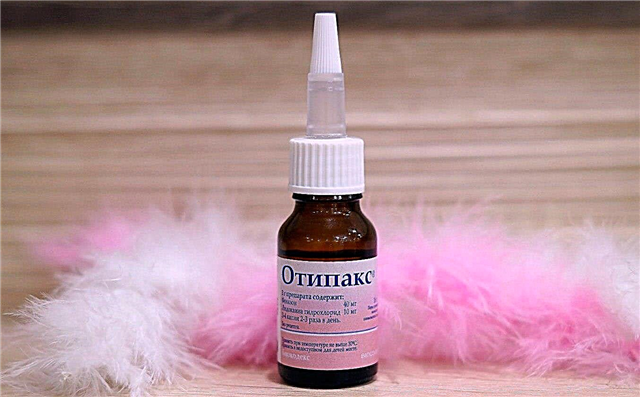
In the body of a woman expecting a child, significant changes occur, affecting all organs, including the digestive tract. Problems such as heartburn, constipation, heaviness in the stomach and other uncomfortable symptoms visit many expectant mothers. If they are pronounced, the doctor may prescribe antacids, one of which is "Phosphalugel". Instructions for use allow it to be taken from heartburn even in the early stages of pregnancy, but only as directed by a doctor. Let's take a closer look at what such a medicine is, in what cases it is in demand, how it acts on the gastrointestinal tract, what users write about it in reviews.

Features of the drug
"Phosphalugel" is produced in the form of a gel, which has a white color and orange flavor. The gel is packaged in sticks or sachets of 16 and 20 g, and then sold in pharmacies as an over-the-counter product in boxes of 6 or 20 portions. The homogeneous structure of the product may separate over time, but stirring quickly returns homogeneity to the preparation.
The basis of "Phosphalugel" is aluminum phosphate with a concentration of 20%. Depending on the weight in one sachet, the dosage of the active substance is 10.4 or 12.38 g.
Additionally, the gel mass contains sorbitol, pectin, calcium sulfate, agar-agar, water, potassium sorbate and orange flavor. The shelf life of the medicine is 3 years.


Operating principle
The tool is in demand for various problems in the work of the digestive system, since the gel is capable of:
- neutralize excess hydrochloric acid, normalizing the acidity of gastric juice;
- envelop the walls of the stomach with the formation of a protective layer on their surface;
- reduce the activity of pepsin;
- absorb toxic substances, pathogens and gases;
- to normalize the speed of movement of food masses through the intestines.
Thanks to these effects, the gel protects the digestive tract from various damages and activates tissue regeneration. Reception of "Phosphalugel" helps to eliminate pain, diarrhea, heartburn, sour belching and other uncomfortable phenomena. At the same time, the gel is not absorbed through the intestinal walls, the electrolyte balance does not violate.

Is it allowed during pregnancy?
As already mentioned, "Fosfalugel" it is permissible to use while carrying a child, if it was prescribed by a doctor... The drug enters the bloodstream at a scanty concentration, without affecting other organs of the patient and the fetus. This makes it in demand throughout the gestation period.
It is known that at an early stage, it is advisable to refuse the use of any medications, but "Fosfalugel" can be taken in the 1st trimester, if there is an urgent need for it. In the 2nd and 3rd trimesters, the drug is prescribed without restrictions, calling it absolutely safe for the fetus.

At the same time, doctors clarify that the medicine will be beneficial only with strict adherence to the dosage regimen prescribed by the doctor. If a woman takes this gel on her own initiative or independently increases the dosage, unpleasant consequences are possible, including for the unborn child.
For example, an excess of the drug will increase the concentration of aluminum in the patient's body, which can affect intestinal function and harm the fetus.
Besides, "Phosphalugel" should not be combined with many other drugs, that the attending physician will certainly take into account when writing out a prescription for this antacid agent for the expectant mother. The specialist will also select the optimal dosage, as well as tell you what time it is best to take the gel. That is why using the product without medical advice is undesirable.

When is it prescribed for expectant mothers?
The reason for the discharge of "Fosfalugel" are various diseases of the digestive tract. Quite often, such a medicine is prescribed to patients with peptic ulcer disease, gastritis with normal or increased secretory function. The drug can be used in a situation where the contents of the stomach enter the esophagus. This state is called gastroesophageal reflux. In this case, an inflammatory process is provoked in the esophagus, called reflux esophagitis.
In addition, "Phosphalugel" is used to treat a hernia of the diaphragm, if it is localized in the esophageal opening. A bag of gel can be a quick relief for dyspepsia and functional digestive disorders.

It is also prescribed in cases when the gastrointestinal tract has reacted with unpleasant symptoms to drugs or other irritating factors.
Sorbing properties of "Phosphalugel" are in demand with food poisoning, rotavirus infection and intoxication. In late pregnancy, the gel helps out with bouts of heartburn, which are caused by an enlargement of the uterus and displacement of the digestive organs. Due to the adsorbing effect, the medication can also help with toxicosis, but such use must necessarily be agreed with the doctor.

Contraindications
Refuse to use the gel should with hypersensitivity to any of its components, as well as with serious kidney disease that significantly worsened the excretory function. Caution in the treatment with "Phosphalugel" is required with pathologies of the heart and liver.
Side effects
One of the common side effects of Fosfalugel is constipation... To prevent its development, while taking the drug it is recommended to control the drinking regime: consume more clean water during the day.

Instructions for use
Before using a packet of "Phosphalugel" recommended to knead with your fingers. This will mix the ingredients of the gel evenly, making the preparation homogeneous. The place where the package is opened is marked on the stick on one of its sides, and in the case of the sachet, on one of the corners. Along the indicated line, the package should be torn or cut, and then squeezed out into a spoon. The gel can be taken undiluted or diluted with a small volume of water (up to 100 ml).
A single dosage of the medicine is specified with the attending physician... For some women, one sachet will be a sufficient dose, for others, the doctor may recommend taking the contents of two packages at once. The regimen of admission is also determined individually, which depends on the diagnosis. For example, for diaphragmatic hernia or esophagitis with reflux, the gel is taken immediately after meals 2-3 times a day.

If the patient has a peptic ulcer, the drug is drunk 1-2 hours after meals. In the case of functional pathologies of the large intestine, the drug is used on an empty stomach in the morning and before bedtime.
If heartburn occurs, the reception is carried out immediately after the appearance of such an unpleasant symptom. If the expectant mother has gastritis, the medication should be drunk half an hour before meals.
How long to take "Phosphalugel" is decided by the attending physician. In the case of dyspepsia, the medicine can only be used for a day, and when the condition returns to normal, it is stopped. For food poisoning, the medication is taken for 2-3 days or longer if symptoms persist. If a woman has an aggravated gastritis, the doctor may prescribe a course of "Phosphalugel" lasting 7 days or more.

Review overview
About the use of "Phosphalugel" during pregnancy, users leave mainly good feedback... In them, women note the effectiveness of the gel for heartburn, nausea, belching, diarrhea and many other unpleasant symptoms. Among the advantages of the drug are convenient portioned packaging, pleasant taste, fast action, safety for the fetus. The main disadvantage is the high cost of the product. In addition, in some expectant mothers, Fosfalugel provoked constipation.

Analogs
If there is a need to use another antacid, then the doctor can replace "Phosphalugel" with one of the following drugs.
- "Gastal". These sweet tablets contain compounds of aluminum and magnesium, are able to reduce the activity of hydrochloric acid and pepsin. The drug is used during pregnancy as directed by a doctor, if the expectant mother is worried about exacerbation of gastritis, reflux esophagitis or peptic ulcer disease.

- "Almagel". The suspension is based on algeldrate and magnesium hydroxide. The tool quickly neutralizes excess gastric juice and envelops the mucous membrane well. Although the annotation to the drug indicates that it is contraindicated during pregnancy, but in some cases a short course of Almagel brings more benefit than harm (for example, if the expectant mother has developed acute gastroduodenitis).

- "Gaviscon". The effect of such a suspension on the gastrointestinal tract is due to sodium bicarbonate, sodium alginate and calcium carbonate. Once in the stomach, the medication becomes a neutral gel that protects against reflux. The drug is called harmless to the fetus and is prescribed for pregnant women at any time. It comes in pill form.

- Rennie. This preparation contains magnesium and calcium carbonates. The medicine is presented in sweet chewable tablets. Rennie's ingredients neutralize hydrochloric acid for a long time.
It is permissible to use the pills both in the early period and in the later trimesters to get rid of heartburn and other unpleasant symptoms.

Review of the drug "Fosfalugel", see below.



